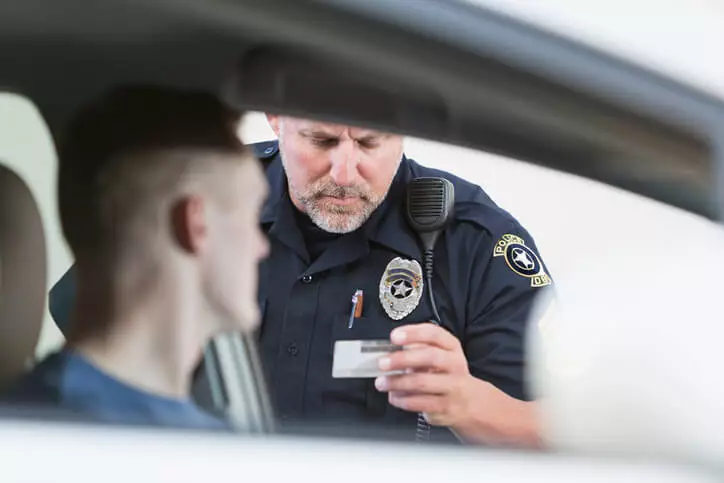Chances are you have heard the acronyms DWI or DUI regarding accidents or someone charged with a serious offense. It’s important to know what these terms mean and how they could affect your life and your freedom.
What is a DWI?
DWI refers to driving while intoxicated or impaired, and the term DUI refers to driving under the influence. Both abbreviations mean similar things, but the difference is that a DWI refers to the consumption of alcohol (drunk driving). A DUI could mean the person was under the influence of drugs (both recreational or prescription medication).
It is important to note that different U.S. states classify driving while impaired and driving while under the influence differently. In one state, a person who has a blood alcohol content of higher than allowable might be charged with a DWI, DUI, OUI (operating under the influence), or OWI (operating while intoxicated).
If an officer stops someone who they suspect of impairment, they may ask them to take a breathalyzer test or perform a field sobriety test right there on the side of the road. Along with the breath test, an officer may demand a blood test as well. The legal limits for blood alcohol concentration (BAC) vary by state, but if the person agrees to the test, they will most likely be subject to a driver’s license revocation and face jail time because of a DWI charge. In addition, DWI convictions stay on the person’s record for a long time (in some states forever) and make it difficult to find employment.
DWI Laws
State laws regarding DWI vary in a few ways. First, the BAC limit for driving under the influence of alcohol may be different from state to state. Many states use a legal limit of 0.08%. Anyone driving with a limit of 0.08% or higher will face a DWI conviction. However, Utah caps its BAC at 0.05%. Therefore, anyone driving with as little as 0.05% alcohol in their system will be slapped with a criminal conviction.
The federal legal limit is 0.08%, but if the offender is under the age of 21, they may face even more severe penalties. Underaged drinking is a priority for most law enforcement agencies. Many states honor zero-tolerance laws. Some young people may have their driving privileges revoked soon after getting their license and face criminal charges to boot.
Additionally, some states issue harsher penalties depending on the amount of alcohol in your system. For example, if an offender drives with a BAC of. 15% or more, they may face more jail time and steeper fines along with community service and possible probation after prison. Offenders driving under the influence of drugs face similar punishments.

Most jurisdictions issue a license suspension after a first offense DWI conviction. Depending on the location, the loss of license may only be for 90 days or a whole year. The offender will most likely have to attend mandatory court-ordered alcohol education and treatment along with paying a fine.
Once the license suspension is over, the offender will have to visit the department of motor vehicles and pay a fee to get their license back.
If you earn a first offense DWI in Alaska, you will only lose your license for 90 days. However, that same charge in Connecticut will earn you a license suspension of one year. In addition, many states now require that someone with a DWI charge have an ignition interlock device installed in their car for a period of months following their conviction. The device uses a breathalyzer, and the vehicle will not start if the BAC limit comes back too high.
A first offense DWI is typically a misdemeanor. However, someone convicted of repeated offenses will end up with a felony and may be in prison for years. In addition, if their DWI impacted someone else’s life, for example, if someone was hurt or killed in a DWI accident, the punishment will be far greater.
How Long Does a DWI Affect Your Insurance?
The impact of a DWI on someone’s life is pretty severe. First, you may lose your license and won’t have any way to get to and from work. This alone may complicate your living situation and affect others in your home.
Secondly, your car insurance rates will go up. You may even have to file special paperwork (SR-22) with the state DMV for a while (usually three years) showing that you are paying for the proper insurance after a DWI charge. Some insurance companies will refuse to insure your vehicle after a DWI or DUI charge.
You may also have a really difficult time getting a job, especially if driving was part of your duties. Commercial drivers (CDL) rely on being able to drive to earn a living. If they get a DWI, it may be impossible for them to find employment.
You may end up in jail or prison. Most states tend to put a first offender on probation and force them to use an ignition interlock device installed for a year or so rather than send them to prison. However, some states take a tough stance against drunk driving. For example, in Vermont, many DWI offenders spend up to two years in jail following a conviction.
Another significant issue is that you will have a criminal record and a DWI stays on your driving record for a long time, in some cases indefinitely. Unfortunately, some states do not ever allow DWI charges to be expunged, and you may carry that burden around for the rest of your life. The average time a DWI stays on your record is three to five years. In California, it will be on there for ten. Regardless of whether or not you go to jail, you may still be on probation for a year or more after. You will need to be very careful not to incur any further driving offenses during that time, or you could end up in jail.
Some states demand that you take a defensive driving class before getting your license back.

A DWI can be costly. First, you must pay the court a fine which can end up being a lot of money. Next, to plead your case, you may have to hire a defense attorney, and they tend to be very expensive. Even if they offer you a free consultation, a DUI lawyer will charge a lot to work on your DWI case. Many offenders have to take court-ordered drug or alcohol education classes which often cost money. To get your license back after a DWI, you have to pay the DMV or the state fees as well. All said and done; you could lose thousands of dollars with one incident. Driving while intoxicated just doesn’t make sense for all the long-term consequences that will follow you for years.




















